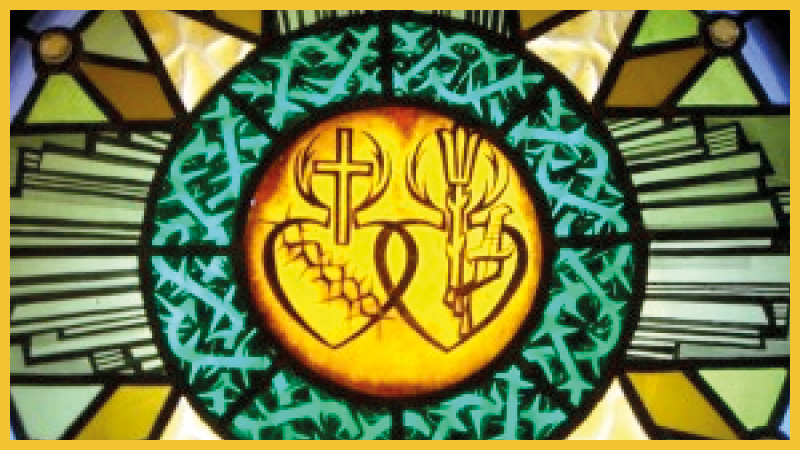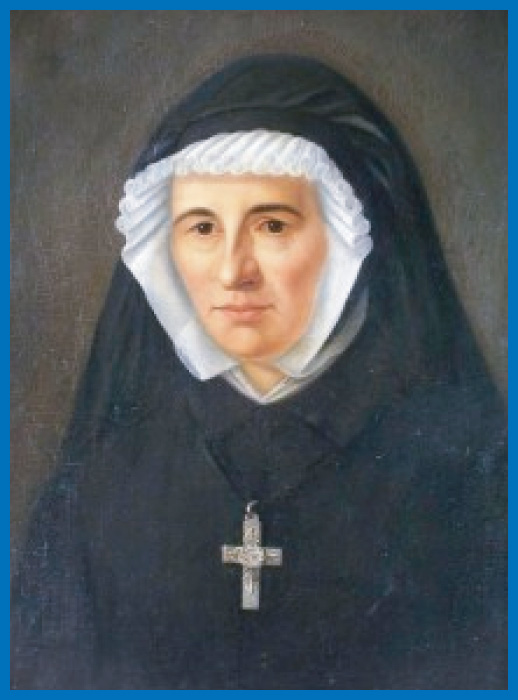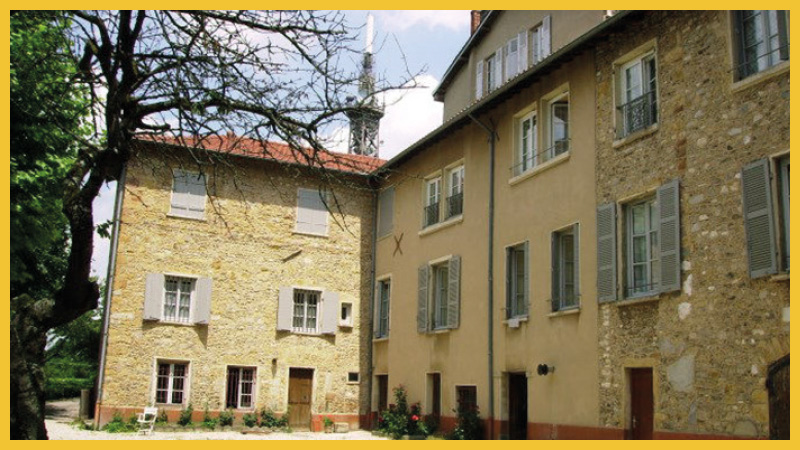History
Claudine Thevenet was born in Lyon, France on 30th March, 1774. After a traumatic experience of the execution of her two brothers and the French Revolution, she realized the urgent need to re-discover the existence of a good God who loves humanity unconditionally. “Forgive as we forgive”, is the legacy that her two brothers left Claudine before dying. This moment marks a decisive turning point in her life. She was then 19 years old. The words of her brothers left her with deep anguish to seek what best could be done to experience the goodness of God. So, Claudine, together with other young women, began a clandestine apostolate, to relieve the suffering, show charity those left downtrodden, to bring God into their lives, to know and love Him, even before the war ended.
The driving force of her life was the love of God. Claudine dedicated her energy, time and entire life for children and young people who were left ignorant of God. One day at the entrance of the Church of Saint Nizier, she accepted two little girls who were abandoned.
At this moment, with the collaboration of her young companions, the first Providence was established and named the Providence of the Sacred Heart.


Saint Claudine Thévenet
(Mother Mary of Saint Ignatius)
Foundress of the Congregation of the
Religious of Jesus and Mary
Saint Claudine
Birth: March 30th, 1774 – Lyon, France
Foundation of the Congregation: October 6th, 1818
Religious Profession: February 25th 1823
Death: February 3th 1837 – Lyon, France
Last Words: «How good God is!»
Beatification: October 4th 1981 – Rome, Italy
Canonization: March 21th 1993 – Rome, Italy
Born into a family of silk merchants in Lyon – France -, she received a good education and Glady, as she was known affectionately, was, as a young girl, the angel of her home. She was not, however, spared suffering; she experienced the horrors of the French Revolution, and saw the brutal execution of her two brothers; she drew strength from the Hearts of Jesus and Mary in order to respond to their most difficult last request: “Forgive, Glady, as we forgive”.
Her sympathetic heart was touched by the miseries of the aftermath of the Revolution; the objects of her maternal care were above all the children and young people who had been abandoned and were living in total ignorance of God. She responded to their distress by the foundation of a Providence with the collaboration of a group of friends who had come together in the Association of the Sacred Heart.
Her pedagogy was one of love, goodness and foresight.
Claudine experienced the goodness of God; she trusted in Him completely and with the strength drawn from that trust undertook adventure which found its highest expression in her dying words: “How good God is!”.
Foundation
Claudine’s principal objective was education, with a clear preference for the young and among them the most unfortunate. Her pedagogy was based on love, goodness, preventive, attention to each person, and marked with a family spirit.
Claudine lived the experience of God, and she surrendered herself totally to Him. Her last words “How Good God is” indicates the character of this great woman who allowed the Holy Spirit to guide her. Having accomplished her mission on this earth, Claudine entered her heavenly abode on a Friday at 3 o’clock in the afternoon of February 3, 1837, at Fourviere, in France.




